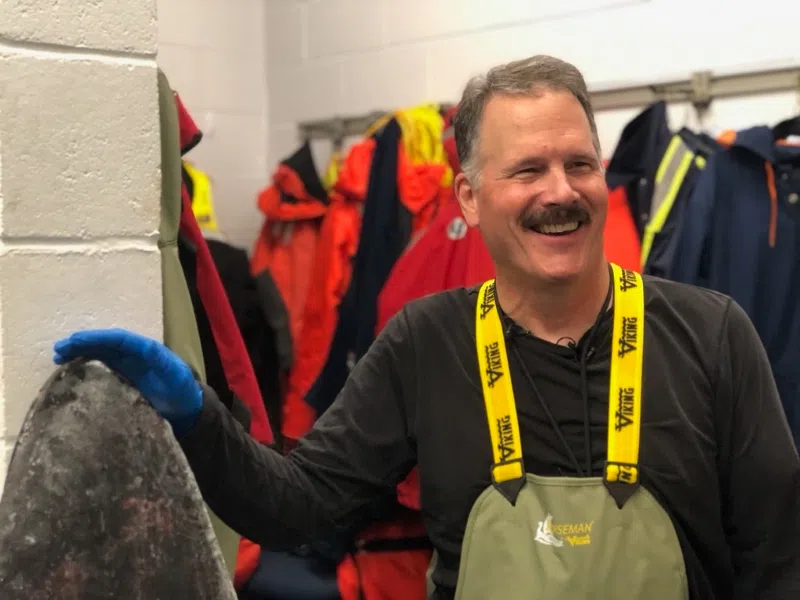
It’s like Christmas for DFO research scientist Dr. Jack Lawson as they have a rare opportunity to study a dead Orca from our province’s waters.
It was a rather smelly morning inside the DFO building as Dr. Jack Lawson and his team perform a necropsy and look at samples collected from a sub-adult killer whale that was captured incidentally in a gill net just north of Beaumont on the north coast near Notre Dame Bay a few weeks ago.
It was not a scene for those with a weak stomach, but for Dr. Lawson it’s an exciting and rare opportunity as it’s a species they don’t often get to look at, as they are rarely found dead.
It’s the first time Dr. Lawson has had a chance to do a necropsy on an orca.
It offers an advantage for science in terms of the freshness of the sample, as they can explore DNA and gut samples.
This orca in particular has many notches and scars on the back of its dorsal fin—they will compare those with photographs of others from around the province and perhaps get a match.
Its intestines are incredibly important to research. They can go a day or two without eating, and often their stomachs are empty. By looking at the intestines you see a part of its previous meal, and they hope to find remains of fish, fingernails from seals or teeth from dolphins—but they really don’t know.
Dr. Lawson says it’s like unwrapping a Christmas gift, because they have no idea what they might get.
Ever wonder how big an Orcas dorsal fin is?
Well, here is a look.
At DFO this morning where media are getting a look at an Orca that was trapped and died in fishing nets. @VOCMNEWS pic.twitter.com/YApeeFjqac
— Ben Murphy VOCM (@BenMurphyVOCM) October 16, 2019























